A ban on e-cigarettes and restrictions on heated tobacco products (HTPs) went into effect yesterday, with offenders facing a hefty fine of up to NT$50 million (US$1.64 million).
The Legislative Yuan on Jan. 12 passed amendments to the Tobacco Hazards Prevention Act (菸害防治法), which the president promulgated on Feb. 15 and took effect yesterday.
Minister of Health and Welfare Hsueh Jui-yuan (薛瑞元) said the biggest changes are a ban on e-cigarettes — including manufacturing, importing, selling, offering, displaying or advertising e-cigarette products and device components — and requiring HTPs to pass a health risk assessment review by the Ministry of Health and Welfare before they can be manufactured, imported or sold.
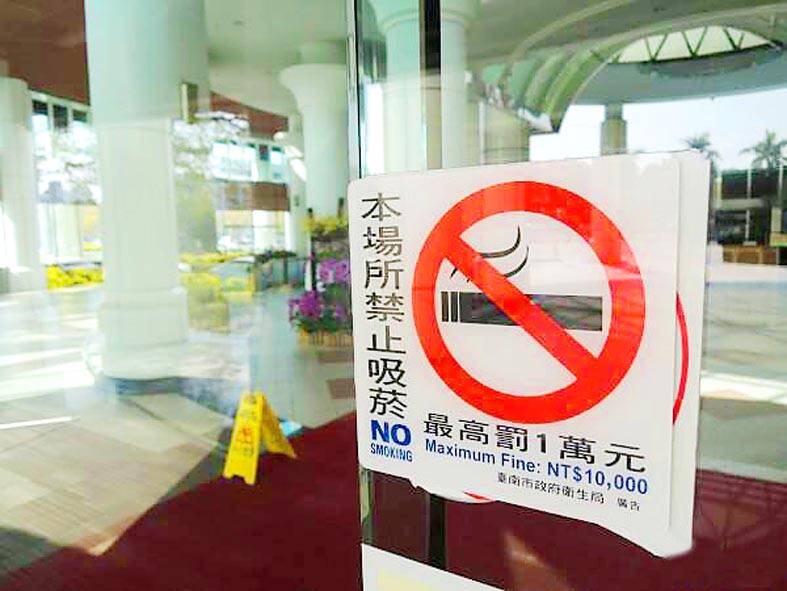
Photo: Chung Li-hua, Taipei Times
It also raises minimum age for smoking to 20, bans smoking on all school campuses, increases the size of the required health warnings on cigarette boxes to 50 percent of a package’s surface and bans the use of prohibited additives in tobacco products.
The maximum fine for those who manufacture, import, sell, offer or advertise e-cigarette products, or unapproved HTPs, is NT$50 million, the Health Promotion Administration (HPA) said.
Users of e-cigarettes or non-approved HTPs could be fined up to NT$10,000, it said.
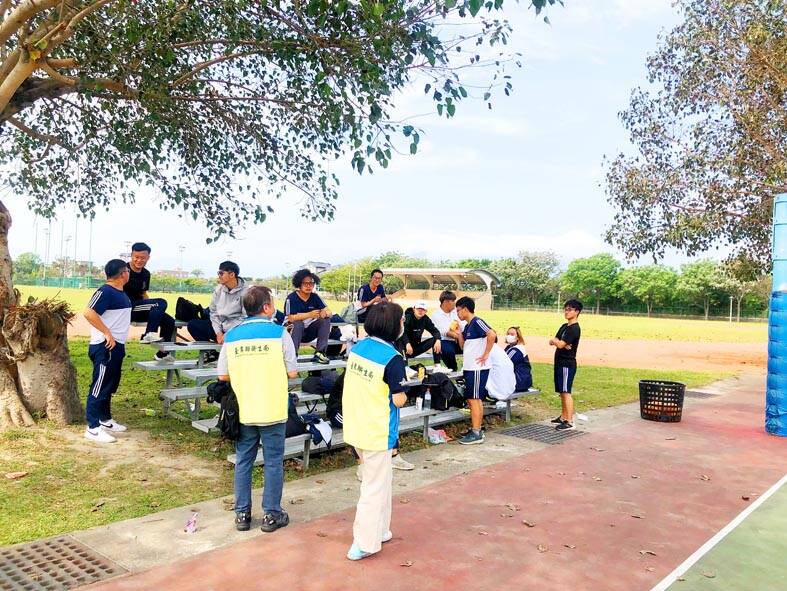
Photo courtesy of the Taitung County Government
While e-cigarettes are strictly banned, HTPs may be sold on the market after passing a health risk assessment, so a strict clampdown on these products is to start immediately, Hsueh said.
There have been misleading advertisements and disinformation about new tobacco products, he said, adding that there are many unlisted chemicals in vaping liquid and aerosols that can damage people’s health.
HPA Director-General Wu Chao-chun (吳昭軍) said that starting yesterday, the HPA and local health departments would work together to crack down on illegal tobacco products, including at physical stores, night markets and online platforms, as well as door-to-door sales and other distribution channels.
The agency urged e-commerce platforms to strictly censor the items sold on their Web sites and take down illegal tobacco products or face a fine, Wu added.
HPA Smoke Hazard Prevention Division senior technical specialist Liu Chia-hsiu (劉家秀) said the agency’s survey found that traditional cigarette smoking rates among high-school students have dropped, but the proportion of high-school students smoking e-cigarettes has increased in recent years.

MATAIAN RIVER: Rescue operations were ongoing, with officials urging residents to move to higher floors where possible as teams focus first on those at ground level Floodwaters from the overflowing Mataian River (馬太鞍溪) barrier lake swept into Hualien County’s Guangfu Township (光復) yesterday afternoon, leaving hundreds of people trapped and three missing as of press time last night, the Hualien County Fire Bureau said. The waters surged into downtown Guangfu after the riverbank burst at about 2:50pm, carrying mud and debris and submerging streets to rooftop level in some areas. Residents were seen climbing onto vehicles and rooftops to await rescue as thick, silt-laden water inundated the town. The surge destroyed the Mataian Bridge (馬太鞍溪橋) and flooded the Guangfu Railway Station. Rescue operations were launched with support from fire departments
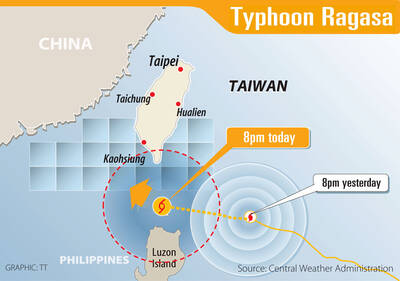
WARNING: People in coastal areas need to beware of heavy swells and strong winds, and those in mountainous areas should brace for heavy rain, the CWA said The Central Weather Administration (CWA) yesterday issued sea and land warnings for Typhoon Ragasa, forecasting that it would continue to intensify and affect the nation the most today and tomorrow. People in Hualien and Taitung counties, and mountainous areas in Yilan and Pingtung counties, should brace for damage caused by extremely heavy rain brought by the typhoon’s outer rim, as it was upgraded to a super typhoon yesterday morning, the CWA said. As of 5:30pm yesterday, the storm’s center was about 630km southeast of Oluanpi (鵝鑾鼻), Taiwan’s southernmost tip, moving northwest at 21kph, and its maximum wind speed had reached
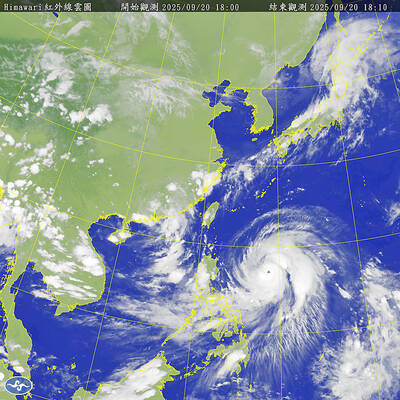
The Central Weather Administration (CWA) yesterday said that it expected to issue a sea warning for Typhoon Ragasa this morning and a land warning at night as it approached Taiwan. Ragasa intensified from a tropical storm into a typhoon at 8am yesterday, the CWA said, adding that at 2pm, it was about 1,110km east-southeast of Oluanpi (鵝鑾鼻), Taiwan’s southernmost tip. The typhoon was moving northwest at 13kph, with sustained winds of up to 119kph and gusts reaching 155kph, the CWA Web site showed. Forecaster Liu Pei-teng (劉沛滕) said that Ragasa was projected to strengthen as it neared the Bashi Channel, with its 200km
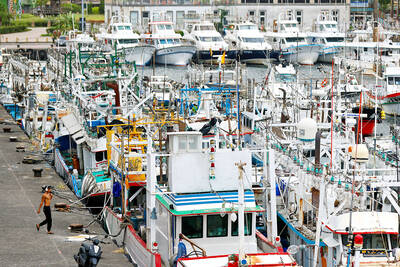
PUBLIC ANNOUNCEMENTS: Hualien and Taitung counties declared today a typhoon day, while schools and offices in parts of Kaohsiung and Pingtung counties are also to close Typhoon Ragasa was forecast to hit its peak strength and come closest to Taiwan from yesterday afternoon through today, the Central Weather Administration (CWA) said. Taiwan proper could be out of the typhoon’s radius by midday and the sea warning might be lifted tonight, it added. CWA senior weather specialist Wu Wan-hua (伍婉華) said that Ragasa’s radius had reached the Hengchun Peninsula by 11am yesterday and was expected to hit Taitung County and Kaohsiung by yesterday evening. Ragasa was forecast to move to Taiwan’s southern offshore areas last night and to its southwestern offshore areas early today, she added. As of 8pm last night,